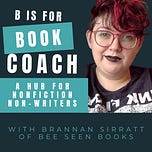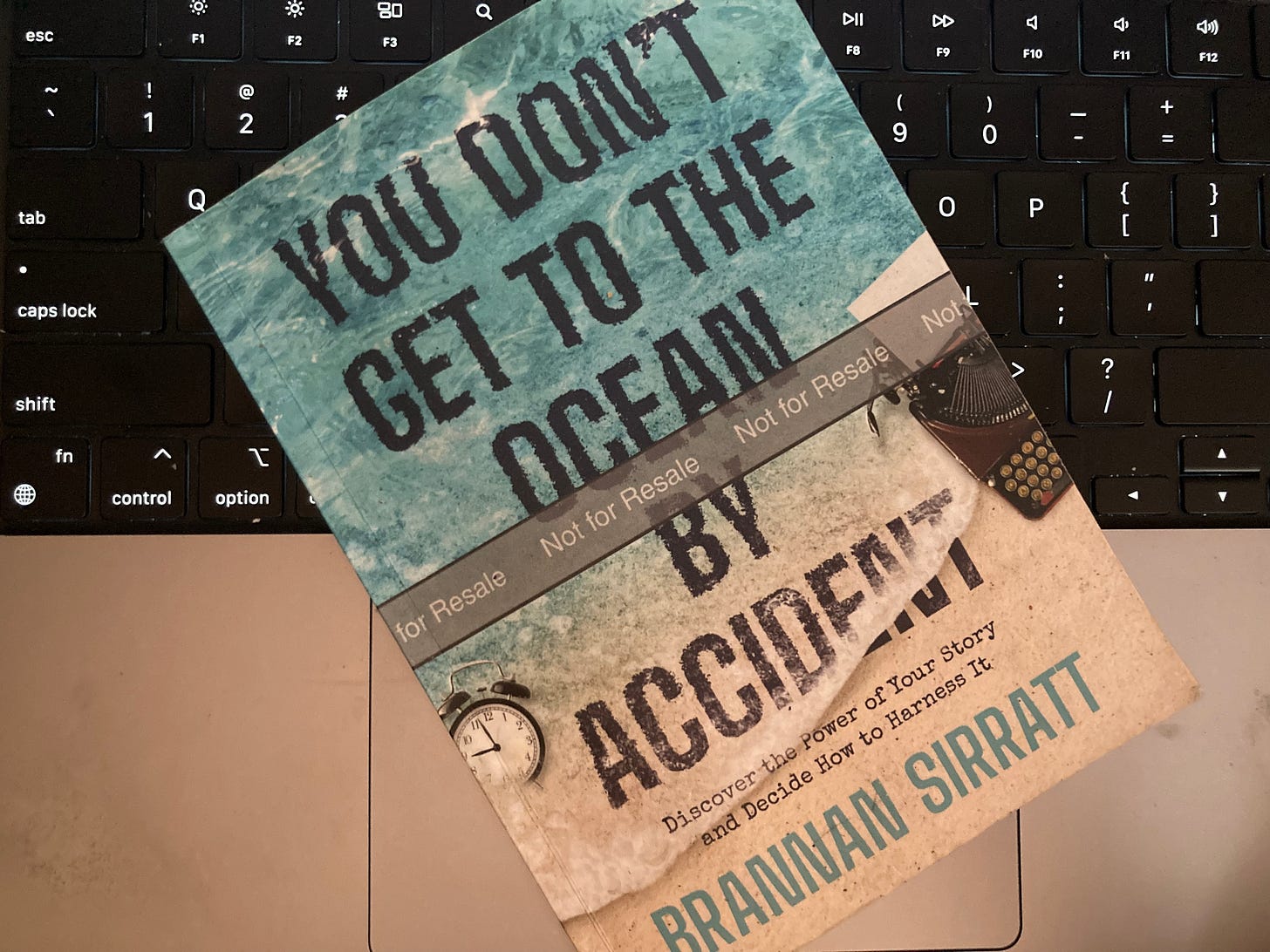Welcome to a special edition of B is for Book Coach. In these episodes, I’m going to read through pieces of You Don’t Get to the Ocean by Accident—the workbook version of the early work I do with all of my authors.
If you want to follow along or jump ahead, pocket-sized copies are available on Amazon, and every Substack subscriber gets a fillable PDF copy as well.
Today, we’re reading from: Ethos and Process.
Ethos
What’s in You Is Worth Telling
People are sometimes surprised to find that I’m not a “red pen editor.” I think it’s old school-year wounds, where we’re not quite sure how we feel about something until there’s a grade on it…or maybe that’s just me.
In any case, developmental editing is very different from proofreading, which I’ve done plenty of as well.
Proofing is based on objective standards (though the objectives can change based on your preferred style’s school of thought) and is about finding all the wrong things in the words you’ve strung together.
Developmental editing is about finding the strings of words that feel right altogether.
There are a thousand different versions of your book that could exist in the world as objectively good.
There is the novel version, the business how-to version, the memoir. There is a graphic novel and a poetry collection and an academic exploration.
There is something all about you and something that keeps you in the background. That’s the good news and the terrible news all rolled up into one: you have all of the options, which means you have all of the options.
And I can’t tell you which one to choose.
“You already know what you’re going to do. Everybody does.”
— Fiona Shaw (Aunt Petunia) as a therapist in Fleabag
I can’t tell you when you’re done. I can’t tell you if you’re on the right track. What I can tell is when you feel like you’re on the right track.
I’ve got enough pattern-tracking hours under my belt that I can spot the red flags and the hesitance. I can see your eyes light up and your body lean in.
I can see it flowing on the page, and I can see when it’s stuck behind the lump in your throat that says “This matters, and here’s why I’m scared to let the world know it does.”
And when I can’t tell, I can ask.
In Fleabag, a running theme of season 2 is that Fleabag keeps saying she doesn’t know what to do and wants someone else to tell her—but the characters around her keep reminding her that she knows exactly what she wants.
I think you do, too.
Our work isn’t for me to tell you what to say or how. It’s to help you see—and unlock and own—what you already know. Even if you don’t know it yet. It’s in you. Writing is one way to get it out.
The Process
When We Can’t Show Up Wrong, We Start to Show Up Fully
Everyone’s relationship to writing is a little bit different. We like to joke in memes and writing groups about how painful it can be—but humans are messy, and we don’t get to rely on universal standards to tell us about our experience.
As the infamous “they” say: What got you here won’t get you there.
What worked last time may be awful this time. Writing isn’t all bad or all good, and one tool isn’t wholly useful or totally trash.
Absolutes are the realm of “should,” and should has no jurisdiction here.
So our first order of business is to go for the Bs: it’s time to bitch and brag. Lay it all on the table.
What has you stuck enough to start stringing Google terms together to find an editor, or to ask your friend how they finished their book, or to collect a thousand and one process books and social media accounts and any tool or process you can find that’ll help you get. this. book. done already? Which of those books and processes did you hate? Which did you love?
Or maybe you’re not feeling stuck at all.
What was that point that made you feel like you were done (in a good way), and what was your experience of writing to that point? What strengths are you bringing to the table? We’re edging into brag territory here, but the counterintuitive encouragement I have for you is to brag whether or not it’s done or feels good or meets some absolute standard.
Whether you “should” brag means nothing at all. That’s just another false absolute.
What has kept you at the table, day after day, writing or thinking about your topic or toying with the shapes it might take in the world? What tools and methods do you absolutely love and swear by no matter what else might come your way? What does flow look like for you, and how can we make that our objective all the time?
I want to know it all. Because it’s all important, because it’s all you and because you cannot show up “wrong.” You can only show up.
When you believe you can’t show up wrong, you show up fully. And that’s where magic happens.
Ask Yourself
Where are you in the book-writing process? Do you have a publishing vision (traditional, self-pub, hybrid, something else)?
What obstacles have you faced so far, and what kind of support would you like for those things?
What do you love most about writing, books or otherwise? What does “flow” look like for you?
What frustrates you most about writing, books or otherwise? What does “blocked” look like for you?
What are you looking for in a writing partner, support group, book coach, or editor?
Think of your best writing experiences and your worst writing experiences—what does past-you want current-you to know about those situations or project types?
Hey, thanks for creating this extra space with me today.
To get the rest of the workbook right away, look for You Don’t Get to the Ocean by Accident on Amazon, or subscribe to get a free copy right now.
And as always, whenever your book is ready to emerge, the space we made today will be here waiting for you.
And so will I.












Share this post